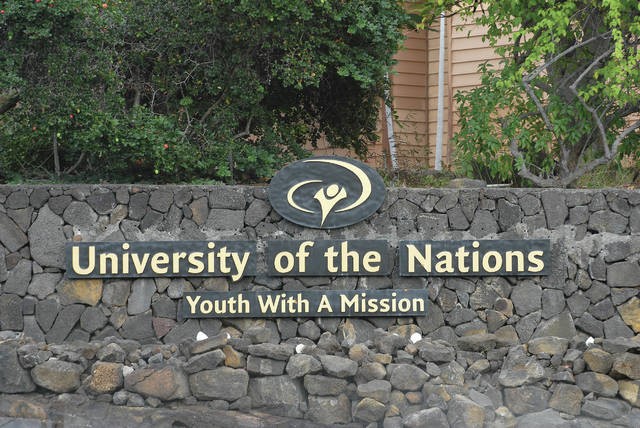YWAM’s University of the Nations (U of N) operates in 650 locations in 160 countries, providing programs in approximately 100 languages around the world. The U of N is committed to teach and develop men and women spiritually, culturally, intellectually and professionally.
As a student in the U of N, you are nurtured as a whole person. You learn in a discipling environment where growth in character and walking in the ways of the Lord are fundamental. You study only one subject at a time in a 12-week modular system, each course approached from a Christian perspective.
The U of N aims to equip students to serve in all spheres of society and in all nations. The goal of the U of N is to teach students how to apply biblical truth practically and to fulfill the Great Commission (Matthew 28:18-20).
The core program in the U of N is the Discipleship Training School (DTS) which is required for all other U of N courses.
To find a University of the Nations course, pick Training from the search bar above, and type in subject words (such as Bible or Counseling) or countries or cities. Also visit the University of the Nations website.
Areas of Study
The U of N offers Associate’s degrees, Bachelor’s degrees, and Master’s degrees from its seven colleges. The seven colleges have been designed to bring God’s truth and hope to the seven most influential areas of society. These colleges are:
- College of the Arts and Sports
- College of Christian Ministries
- College of Communication
- College of Counseling and Health Care
- College of Education
- College of Humanities and International Studies
- College of Science and Technology
There are also nine interdisciplinary centers:
- Community Development and Justice
- Centre Centre for Discipleship Training Schools
- Family Resource Centre
- Student Mobilization Centre
- GENESIS Centre
- Extension Studies Centre
- Centre for Core Curriculum
- Centre for Economic Development
- Centre for Christian Formation and Discipleship
Live-Learn Environment
Students in the University of the Nations live together in dormitories, study together in class and work together on each U of N campus. This community learning concept embodies the New Testament model of Christians who live and learn together and work toward common objectives. This family-style approach implies a sharing of meals, resources, ideas and talents in a spirit of love and unity. Our students and staff come from many nations, cultures, denominations and generations, and God forms us into a beautiful family. The live-learn concept gives students remarkable access to our faculty and staff, who model the life of Christ in many everyday settings. Through the combination of academic study and community life, students grow in character as well as wisdom.
Our Modular Education System
Unlike typical universities, where students take several subjects in any given quarter or semester, University of the Nations students take only one 12-unit school per quarter. This gives our students an in-depth understanding of that subject. Each week, the school focuses on a different theme within that subject, instructed by international speakers who are respected within their fields. Each school is typically followed by an internship or cross-cultural field assignment to give immediate application of what was learned. We believe the best way to learn is by doing.
An added benefit of the modular system is the relational dynamic it creates. Most of our classes are small enough for our students to get to know one another well. From this comes many lasting friendships, greater cross-cultural understanding and an amazing network of connections within the larger YWAM family.
Multi-Cultural and Cross-Cultural
Our courses are offered all over the world with students from multiple nations in each school. You can study the Bible in Taiwan for nine months, then go to another location in Asia to teach others how to study the Bible for themselves. You will learn by doing and you can gain insights while you serve in cultures different from yours.
Accreditation
Some University of the Nations students have received transfer credit for some of their U of N courses. This credit has been granted by other higher educational institutions rather than by accrediting agencies. Also, certain universities have accepted U of N degree graduates into advanced studies (usually Master’s programs).


